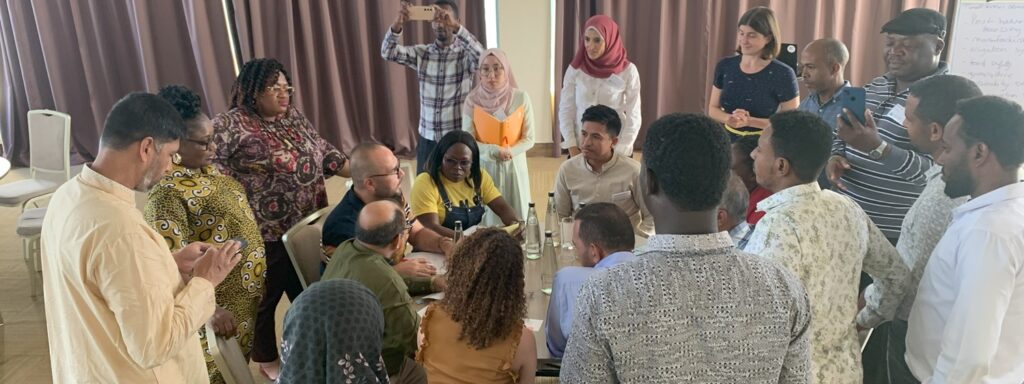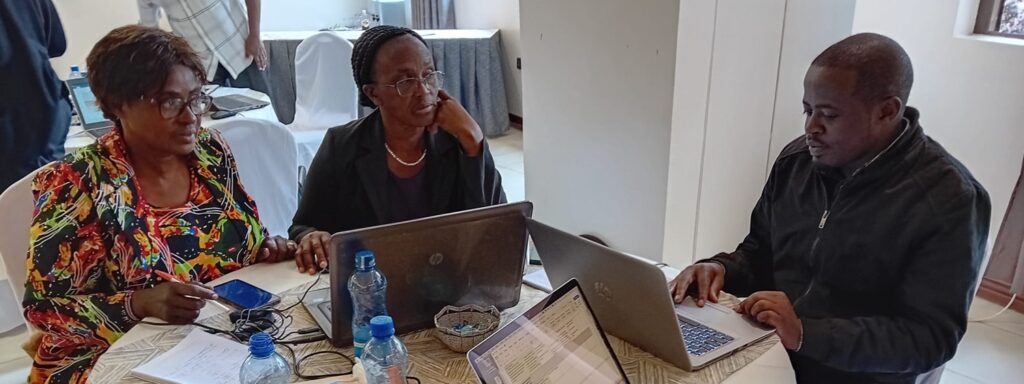RUAF CIC enters into service contracts to fulfil parts of projects hosted by RUAF partners and projects led by allied external organisations. Consultancies are carried out by RUAF’s core team and by highly experienced RUAF associates with relevant knowledge and expertise, who have worked for many years on urban and city region food systems issues.
Consultancy services
Documentation and knowledge systematisation
We document experiences in urban food policy research and practice, and conduct analysis to draw out useful learnings for stakeholders in cities (including local governments, NGOs, and others), as well as other international organisations that support and guide food systems transition in cities around the world, and the research community. The outputs of this work include policy briefs, journal articles, Urban Agriculture Magazine (UAM), webinars, and other resources and events. They are presented in accessible, non-technical language and are generally open-access.
City-to-city exchange
We promote and support knowledge exchanges between stakeholders in different cities and towns (including local government officers, NGOs, community representatives, and the private sector in its various forms) on specific food system issues. This involves: sharing knowledge resources and experiences that have benefited communities elsewhere; promoting take-up of tried and tested tools and approaches; supporting networking by brokering relationships; and involving stakeholders in events.
Training and capacity building

We support local and subnational governments, urban producer organisations, NGOs, CBOs, research centres, and other stakeholders, with training, technical assistance, and capacity building to give them with the skills to strengthen social inclusion, equity, care of the environment and agroecological practices through their own work. To do this, we develop training modules that support the use of our tools and methodologies, and run tailored training courses. Where possible, we adopt a ‘training-of-trainers’ approach, with each cohort of trainees then serving as champions or ambassadors passing on skills and knowledge to others within the community.
We also offer mentoring to specific stakeholders (e.g. marginalised groups, women entrepreneurs, youth) in food systems work. This can include building their confidence and capacity to participate in multi-stakeholder platforms, supporting them with business plans, ensuring they are aware of programme and funding opportunities, and have the capacity to apply.
Multi-stakeholder process facilitation
We promote the adoption of multi-stakeholder processes for meaningful and inclusive food systems governance. We advocate the integration of stakeholder mapping and formation of multi-stakeholder platforms to project partners (such as NGOs, city leaders, international organisations, action researchers), to create space for and enable meaningful participation of all required urban and city region stakeholders, including marginalised people, youth, women, and informal actors. Where required we facilitate workshops, guiding participants to surface and break down pre-conceptions, develop a shared vision, and co-create policy and programme interventions and other pilot initiatives.
Food system assessment and monitoring

We develop innovative tools, methodologies and guidance for urban and city region stakeholders to conduct participatory assessment of urban and city region food systems (including action research), and for monitoring and evaluation.
We seek ways to apply these tools and methodologies as widely as possible, including through projects in which we are a partner, adapting them to apply a new lens if required or to address context-specific needs. We make these tools and methodologies available to other organisations and consultants (local and international) that support urban food systems transformation, and provide guidance/training when required.
For more information about RUAF’s consultancy services or to discuss a project, please contact us.

